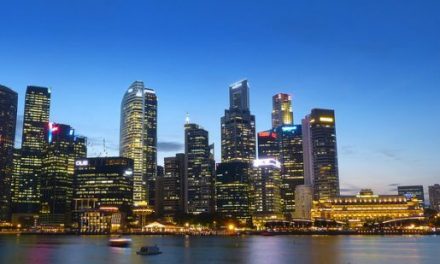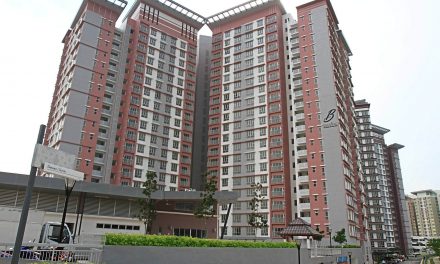Malaysia’s GDP can grow by another 0.8% -1.7% with RCEP: SERC
Malaysia’s economy can expand by another 0.8% and 1.7% while exports can grow by 24.4% over the medium to long terms if it joins the Regional Comprehensive Economic Partnership (RCEP), said Socio Economic Research Centre Malaysia (SERC). The forecasts would be underpinned by the trade, investment and services expansion between Malaysia and the 14 RCEP members, SERC executive director Lee Heng Guie said. “Malaysia’s trade with RCEP members accounted for 58% of total trade in 2020, of which exports made up 56.7 per cent of the total. Hence, it is important for us (Malaysia) to ratify RCEP as soon as possible, as it will send a strong signal to the international committee that Malaysian government is serious to open for business, increase trade and attract both domestic and foreign investments,” he said. SERC is hopeful that the government and relevant agencies will work with chambers of commerce and industry players after the ratification to promote the potential benefits of RCEP on domestic players especially SMEs, which contribute 98.4% to Malaysia’s total manufacturing establishment. Lee said RCEP would be the world’s largest trade agreement and a big game changer to spur global trade and investment post-Covid-19 global recovery. Currently, there are only two Asean countries – Singapore and Thailand – out of the 10 Asean countries that had ratified the RCEP, followed by non-Asean countries – China and Japan. (NST Online)
Rising cost of living proof of corruption impact on Malaysians
Corruption practice has proven to have a trickle-down impact on the average Malaysian consumer, according to research conducted by the Institute for Democracy and Economic Affairs (IDEAS). “The most direct impact that corruption can have on the cost of living is through increasing the costs of doing business, costs which are then passed on to the consumer,” it said. The report, titled “Corruption in the Supply Chain: forms and impacts on consumers” was co-authored with Coalition for Business Integrity (CBI). While bribery is the most common form of corruption in both public and private sectors, other forms of corruption are often taking places such as extortion, embezzlement, fraud, abuse of discretion and favouritism, the report noted. “As a result, corruption can directly increase the prices of essential goods and services.” The report also noted that corruption also inflates the cost of housing as it relates to the cost of property development based on information. “Corruption also increases price levels by reducing the efficiency of private markets as it pushes businesses underground and reduces the purchasing power of citizens,” it said. (The Malaysian Reserve)
Deputy Speaker says Parliament ready for hybrid sitting
The Parliament has adequate facilities to implement a hybrid Dewan Rakyat sitting at anytime if necessary. Dewan Rakyat Deputy Speaker Datuk Mohd Rashid Hasnon said the Parliament was also in the process of finalising other technical aspects required. He said till now there has not been a set date for the Dewan Rakyat to convene and it will follow the Standing Orders that set the need to provide a 28-day notice before a sitting can convene. He also said the implementation of a hybrid Parliament sitting is a new norm and it was not impossible that it would go down as a historical moment for Malaysia as it faces the COVID-19 pandemic. “It also represents a new challenge for the Speaker as we will be dealing with monitors to look at MPs,” he said. Mohd Rashid said if a hybrid Dewan Rakyat sitting does happen, there will be several Standing Orders that require amendments, including the voting process, and all amendments required will be included as an addendum to the existing Standing Orders. When asked about how many MPs need to be present in the Dewan Rakyat if the amendments are to be passed, Mohd Rashid said the minimum number for a quorum is 26 MPs. (Malay Mail)
Moneylenders, credit companies get go-ahead to operate
Community credit companies and moneylenders registered under the housing and local government ministry (KPKT) are allowed to operate during the current lockdown under Phase 1 of the national recovery plan. KPKT said the decision was made at the National Security Council (MKN) special meeting chaired by Prime Minister Muhyiddin Yassin on June 18. Following this, KPKT said community credit companies and moneylenders need to apply for permission to operate through the international trade and industry ministry (Miti) by accessing the ministry’s Covid-19 Intelligent Management System (CIMS) 3.0 portal. According to KPKT, several SOPs have been updated for the sector, including operating hours, while client meetings are limited from 9am to 5pm and only two customers are allowed at the premises at a time. It added that the relevant parties are required to provide the MySejahtera QR Code and customer log book, and customers must check in via MySejahtera or manually. (Free Malaysia Today)
Five Penang ferries tendered to private companies
Five of the iconic Penang ferries will be tendered to private companies from July 1. The private companies which are eligible will convert one of the ferries to a floating museum, two to floating restaurants and two to tourist ferries. Penang Port Commission (PPC) chairman Datuk Tan Teik Cheng said the commission had called for a request for proposal from March 18 to 29 and received proposals from several companies. The companies, said Tan, were given a period of three to five months to repair and refurbish the ferries before commencing operation. “The immediate aim of PPC is to see the five iconic ferries emerging again in Penang waters to attract tourists to the state,” he added. Since Jan 1, only one of the iconic ferries is plying between the island and mainland carrying two wheelers. Another RoRo boat is used to carry two wheelers and pedestrians are ferried using two fast boats. All four wheelers are using the two bridges to travel to the mainland. (The Star)






